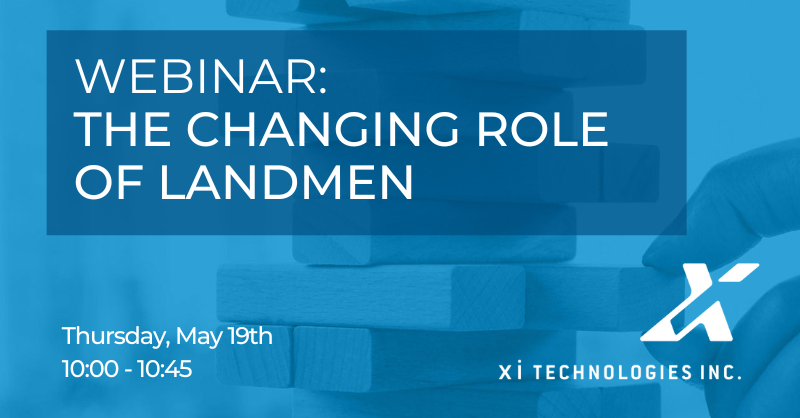Word to the Wise: The changing role of landmen – observations from CAPL Conference 2022
May 10, 2022
Each week, XI Technologies scans its unique combination of enhanced industry data to provide trends and insights that have value for professionals doing business in the WCSB. If you’d like to receive our Wednesday Word to the Wise in your inbox, subscribe here.
Last week, after a couple postponements and an organizational rebrand, the newly-named Canadian Association of Land and Energy Professionals (CALEP, formerly Canadian Association of Petroleum Landmen – CAPL) hosted its 2022 CAPL Conference in Edmonton. This was an opportunity for industry leaders to step back and assess their changing role in an ever-shifting landscape.
From guest speakers like Cassie Campbell and Premier Jason Kenney, to various breakout information sessions, to the general tone and tenor of conversations throughout the conference, it’s clear that enthusiasm in our sector is running high. Current events have underscored the need for the safe, secure, and regulated energy that Canada provides. To meet the demands of this new era, landmen must continue to evolve to provide their organizations with the information they need, not only during the deal-making process, but also in other areas of the business.
Gone are the days where deals could be done over drinks at lunch, hammered out on a few napkins, and settled with a handshake. Today, Land and Energy Professionals have adapted to seek out all the variables of the deal: from liability concerns to indigenous landowner issues to ESG concerns. It’s still a relationship business, but one that demands that those involved have the right information at the right time.
Land professionals have known for years the importance of arming their organization with reliable end-of-life data for potential deals. Whether it’s the liability impacts of a proposed deal on vendors and purchasers, liability data for banks during credit redeterminations, or data for HSE and operations managers for planning and budgeting reclamation work, there’s plenty of demand for accurate liability costs from land professionals.
But the liability landscape in Western Canada keeps changing, forcing land professionals to stay on top of the current demands. The new Directive 088 in Alberta (or similar regulations being adopted in other provinces), increases the need for a complete picture of potential deals as provinces move away from simple LLR calculations to a more holistic view of corporate health throughout the energy development life cycle.
Joining liabilities as a significant topic of conversation throughout the conference this year was Environmental, Social, and Governance (ESG) concerns. To properly capitalize on the current reassessment of Canadian energy, it’s crucial that the industry positions itself to demonstrate its ESG bona fides, particularly in comparison to other volatile global markets. And while situations like the war in Ukraine have markets reconsidering the importance of social and governance factors, Canadian producers can’t let the lure of current commodity prices cause them to overlook the environmental concerns that had previously harmed their reputations.
Land professionals have a part to play here too, by examining ESG factors such as emissions data, freshwater requirements, and indigenous land rights prior to acquisition. Just as they’d adapted to the demands of liabilities, they now must expand their scope to emissions data, ESG considerations, and beyond.
The role of landmen continues to evolve, as reflected in the organization’s name change from CAPL to CALEP. But while the scope of information needed from Land teams continues to expand, it remains true that their role in providing data is an essential step in deal-making. And as the CAPL Conference “Canadian Tuxedo” night proved, building relationships is still a key factor for the role. As Canada’s energy sector adapts to new possibilities, land and energy professionals are poised to adapt their roles to meet these new possibilities.
At XI Technologies, we believe in arming land teams with the data they need, from land and production data users have come to expect and now with ARO, LLR, and Emissions data they’ve grown to need. To learn how we can help with “The Changing Role of Landmen”, register for our upcoming webinar by visiting this link. You can also visit our website or contact us for a demo.
